2021 Haring Center Virtual Auction

Watch the Livestream of the 2021 Haring Center Virtual Auction.

Watch the Livestream of the 2021 Haring Center Virtual Auction.
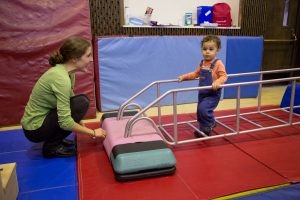
“We know that signs of autism emerge reliably between 18 months and two years,” says Ashley Penney (PhD ‘16), BCBA and research scientist at the UW Autism Center. “But most kids aren’t diagnosed until they’re about four and a half years old.” Annette Estes (PhD ‘98), who directs the Autism Center, explains that the gap is even greater for children who are Black, Hispanic, eligible for Medicaid or living in rural areas. “A large number of kids on the autism…
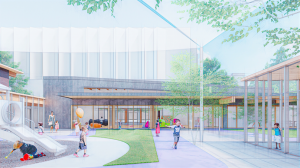
“This is our gym space,” says Chris Matsumoto, Haring Center assistant director and Experimental Education Unit (EEU) principal, standing in front of a pile of mats and trampolines. “And our cafeteria.” He explains how every day at lunchtime, EEU staff push all the gym equipment to the side, set up tables for lunch, and then take down the tables and set it all back up again for afternoon gym. The lack of space is one of the many reasons the…

Haring Center researchers work with teachers, families and communities to advance inclusive education worldwide. In doing so, many serve as faculty at the UW College of Education and train the next generation of early childhood and special education experts. This year, two doctoral students working closely with Haring Center researchers received competitive national fellowships to advance their research in educational equity and inclusion. Gounah Choi, a third year doctoral candidate in special education, began her two-year fellowship with the National…
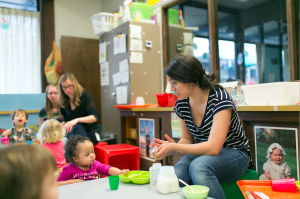
Challenging behaviors in young children often occur at home during daily routines and activities, according to Angel Fettig, Haring Center researcher and UW College of Education associate professor. A family may be working with a professional interventionist to address these behaviors, but that professional is unlikely to be there in the moment to observe the behavior and create a support plan. With funding from the Department of Education’s Institute of Education Sciences, Fettig partnered with Erin Barton at Vanderbilt University…

“Washington State strives to better meet the needs of all learners and families, but we need to develop the infrastructure to support early childhood special education,” says Ariane Gauvreau (PhD ‘15), senior director for professional development and training at the Haring Center. The state is seeking to do just that. One of the ways they plan to do so is with a new partnership that will redesign a framework called the Pyramid Model to center disability, race and equity. The…

Plexiglass barriers. A classroom with two students. Physical therapy through a computer screen. This is just another day at the Haring Center’s Experimental Education Unit (EEU), which is offering a hybrid learning model this school year. Preschool and Kindergarten students come to the EEU two days a week, either Mondays and Tuesdays or Thursdays and Fridays. Learners who qualify for the Early Childhood Education and Assistance Program can attend all four in-person instruction days. All Preschool and Kindergarten families have…
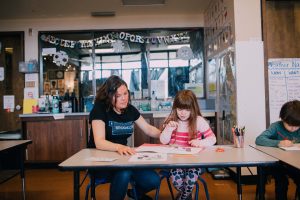
“Imagine you’re a Board Certified Behavior Analyst (BCBA), and there is a child who you are uniquely qualified to help, but you have another relationship with the family as they go to your church,” says Nancy Rosenberg, Haring Center researcher and associate teaching professor at the University of Washington College of Education (CoE). “Do you take on that child as a client?” Rosenberg explains that according to the Behavior Analyst Certification Board (BACB) Professional and Ethical Compliance Code for Behavior…
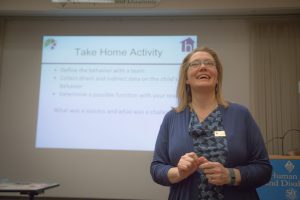
As online learning rapidly became the ‘new normal’ this year, the Haring Center stepped up to ensure inclusion was at the forefront. The Haring Center’s Framework for Online Support comprises a tiered system, at the base of which is ensuring support for families’ basic needs, and moves up through managing behaviors, developing curricula and monitoring progress to adapt as necessary. Each of the Haring Center’s three teams is working from this framework to promote inclusive online learning through its integrated…
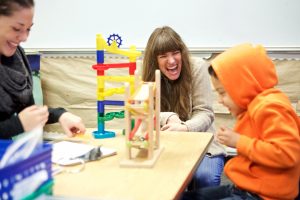
As online learning rapidly became the ‘new normal’ this year, the Haring Center stepped up to ensure inclusion was at the forefront. The Haring Center’s Framework for Online Support comprises a tiered system, at the base of which is ensuring support for families’ basic needs, and moves up through managing behaviors, developing curricula and monitoring progress to adapt as necessary. Each of the Haring Center’s three teams is working from this framework to promote inclusive online learning through its integrated…